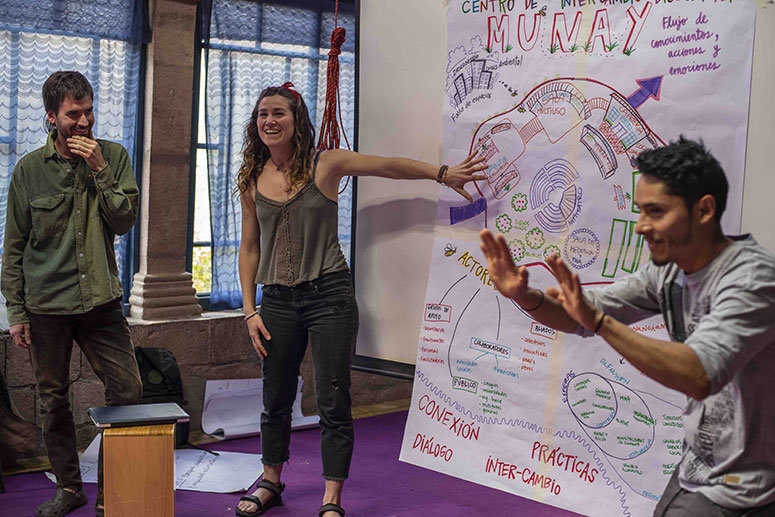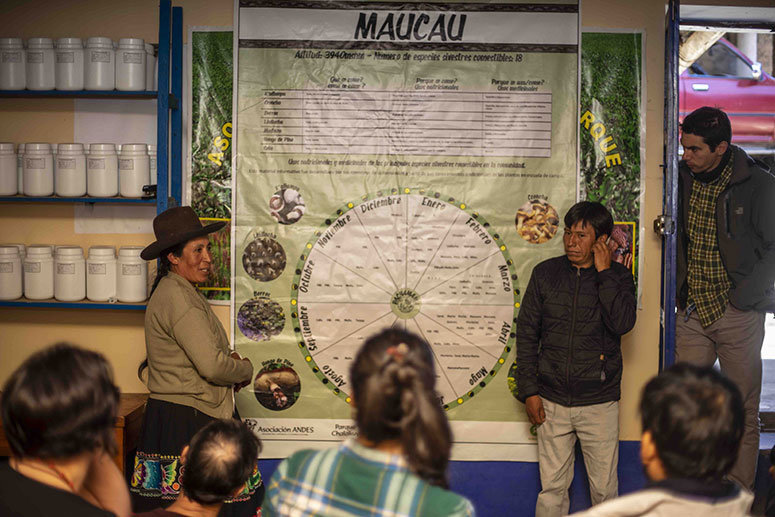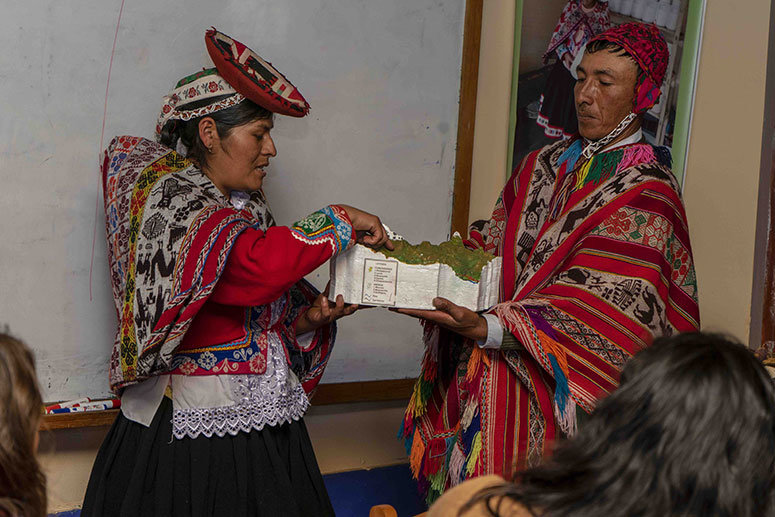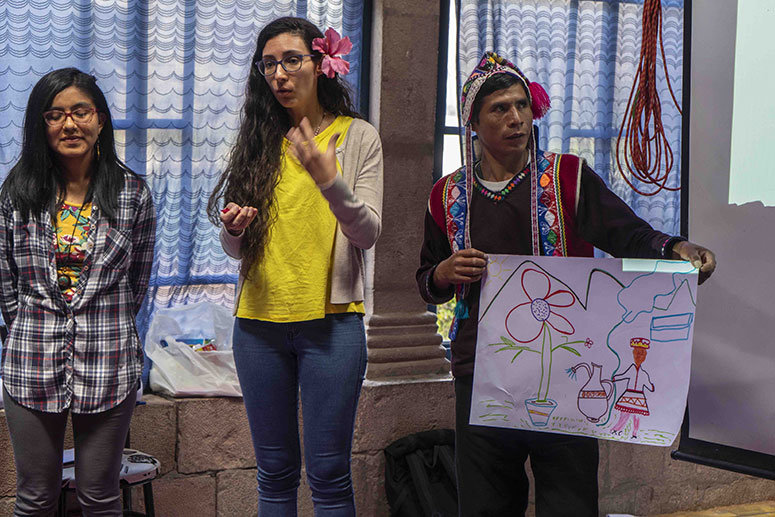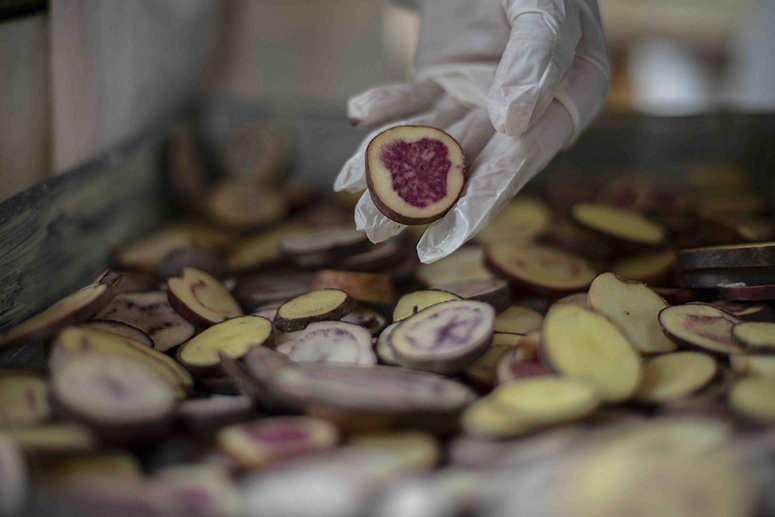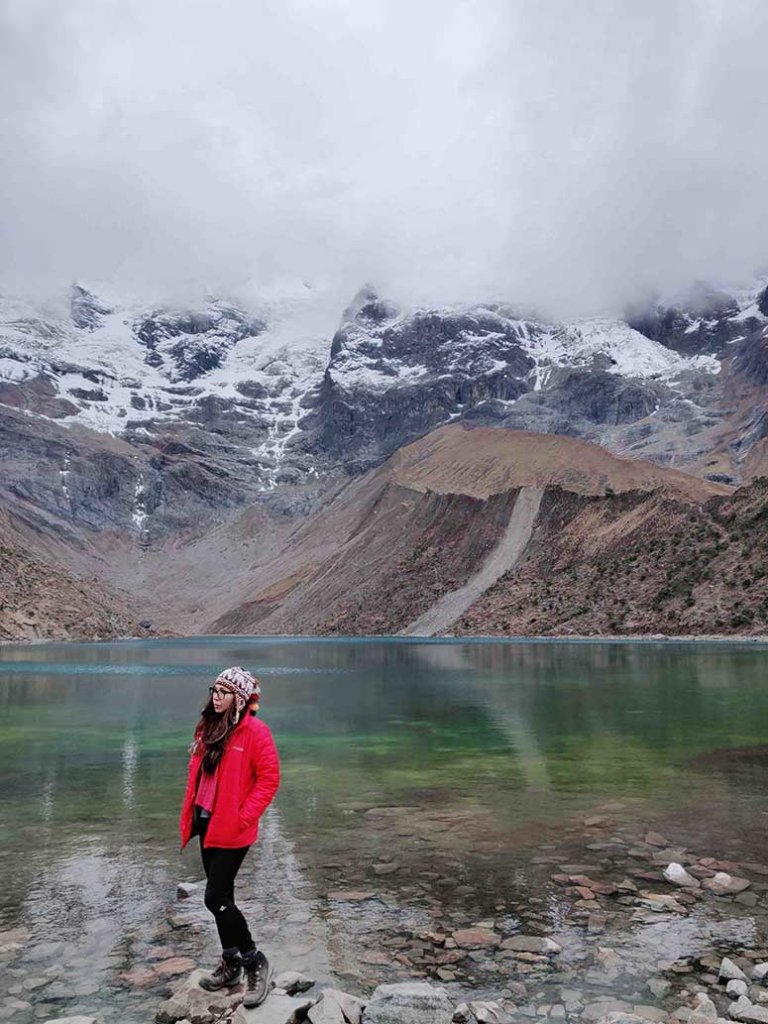By Nessie Reid and Yolanda Lopez Maldonado | GEN Director, and Project Co-organizer
A note from GEN’s Director Nessie Reid
We are delighted to share Yolanda's report (below) about the Latin American Academy for Food Systems Resilience (ALLSA). Given many of the current food and farming crises we are faced with, finding radical and innovative solutions for food systems resilience is more important than ever! We are extremely proud of the core ALLSA team, comprising GEN Alumni, who did a brilliant job organising and facilitating the event. Their efforts truly inspire us as we continue to encourage successful collaborations, networking and peer-to-peer mentoring.
Looking ahead to 2020, plans are shaping up nicely for our next Global Environments Summer Academy (GESA). The four main themes at GESA 2020 will be:
Finally, from all the team at the Global Environments Network, we want to thank and wish all our supporters a very happy and healthy 2020!
Building leadership for food systems resilience in Peru
By Yolanda Lopez Maldonado, PhD - Project co-organizer
ALLSA: Transformative social and environmental learning: Facilitating innovation in agricultural, food and nutritional systems through pluricultural dialogue*
From September 14 to 25, 2019, 17 young Latin Americans between 20 and 35 committed to the sustainability of food systems and the biocultural diversity met in an unprecedented Latin American academy. The participants were principally agents of change, community leaders and innovators playing an essential role in taking action for the resilience of our food systems. And most of the volunteer event organizers, myself included, were alumni of other Global Environments Network events.
The four axes:
This 10-day meeting was held in the magnificent Andean region, outside Cusco, Peru. We partnered with Asociación ANDES and the communities of the Potato Park. ANDES is a non-profit association involved in the recognition and strengthening of communal traditional rights on biocultural resources, and promotion of institutional change and policies relevant to conservation and development. ANDES works cooperatively with Indigenous organizations at the communal level and that strengthen food sovereignty and local sustainability.
The aim of this 10-day meeting was to build leadership through processes of reconnection and to increase the resilience of food systems. The academy was oriented around four transdisciplinary axes:
1) The biocultural axis, to (re)connect with traditional knowledge and integrate different local perspectives, serving as a model of how to create bridges between different knowledge and knowledge-holders. This axis was approached by sharing experiences, food, and knowledge with Indigenous people from the potato park. We visited their communities and promote experiential and horizontal learning based on Indigenous knowledge. We learn directly from them topics such as Sumaq kausay (SK), a central philosophy in Andean Indigenous Cosmovision. It is a holistic vision, which considers diverse elements of the human condition, recognizing that a range of factors influence our quality of life. It can be understood as living well, beautiful life, harmonious existence, or beautiful and healthy life. This concept involves the relationship between humans and nature (Pachamama, Mother Earth) to work together to satisfy their needs through ayni (reciprocity). We also learned how Indigenous communities cope with impacts of climate change for the resilience of their food systems (Photo 2).
2) The second axis examined contextual socio-ecological tools to study and assess food security and food sovereignty. For this axis we partnered with skilled facilitators from Mexico, Guatemala, Brazil, Peru, USA, and elsewhere. They shared diverse methodologies to co-produce knowledge by learning together, and bridging them respectfully (Photo 3).
3) The third axis involved the problems of storage, distribution, transport and marketing of food in sustainable food chains. For this axis, we explored cases from Peru and the overall Andean region. We visited, for example, different local markets, including the “Mercado del trueque” in Lares, where participants were able to interact, buy, exchange products, and learn about the different products from the region (Photos 4 & 5).
4) The fourth and final axis examined participatory leadership and commitment to action, to foster creative approaches to problem-solving through innovation and dialogue among actors. Here participants were able to share their ideas to foster genuine change. We learned how to empower communities to maintain and use their knowledge, concepts, methods and intergenerational knowledge transfer capacity, to support research led by Indigenous peoples and explore ideas for the development of Indigenous communities based on the sustainable use of their biocultural heritage (Photos 1 and 6).
Other activities
Whether among friends or in chance encounters, in Peru, as in many Latin American countries, people love spending time together. This is apparent in the countless local and national festivals that are celebrated in almost every Peruvian state throughout the year. I fell in love with the people of Peru. I especially enjoyed activities that had the communal cooking and sharing of a meal at their center, such as cooking in the Huatia (a traditional Peruvian earthen oven which dates back to ancient times, in which meat or potatoes are cooked) (Photos 7 & 8).
New (to me) ingredients, incredible flavors – the colorful dishes opened the door of a new culinary world to the participants (Photo 9). Overall, Peru opened my eyes to a whole new cuisine that I had previously known nothing about. Fascinated by the diverse dishes and culinary experiences, we embarked on a 10-days journey through Peru’s most important potato regions that deepened our experiential learning.
The trip
On a personal note, surrounded by a geographically-complex landscape, alpacas and colorful markets, I became aware of the beauty of Peru. As an Indigenous researcher who grew up in the Maya lowlands of Mexico, I had no idea what an incredible place I would land in--these flavors, colors and the geographically insane and breathtaking landscapes (Photo 10). The Andean Mountain region, in general, and the people, in particular, fascinated me with their spectacular scenery and generosity. I quickly fell in love with the country. As a scientist, I have had the privilege to get to know many countries and cultures. But as I traveled to Peru for the first time, I realized this country was special. Wherever I visited, I was greeted by a friendly smile, and instinctively I knew I was surrounded by a rich culture thousands of years old, with incredible tales to tell. All these experiences made me determined to return to Peru, and soon.
*Academia Latinoamericana de Resiliencia de los Sistemas Alimentarios (ALLSA): "Aprendizaje transformador socio-ambiental: Facilitar la innovación en los sistemas agroalimentarios y nutricionales a través del diálogo pluricultural"
Project reports on GlobalGiving are posted directly to globalgiving.org by Project Leaders as they are completed, generally every 3-4 months. To protect the integrity of these documents, GlobalGiving does not alter them; therefore you may find some language or formatting issues.
If you donate to this project or have donated to this project, you can receive an email when this project posts a report. You can also subscribe for reports without donating.
Support this important cause by creating a personalized fundraising page.
Start a Fundraiser